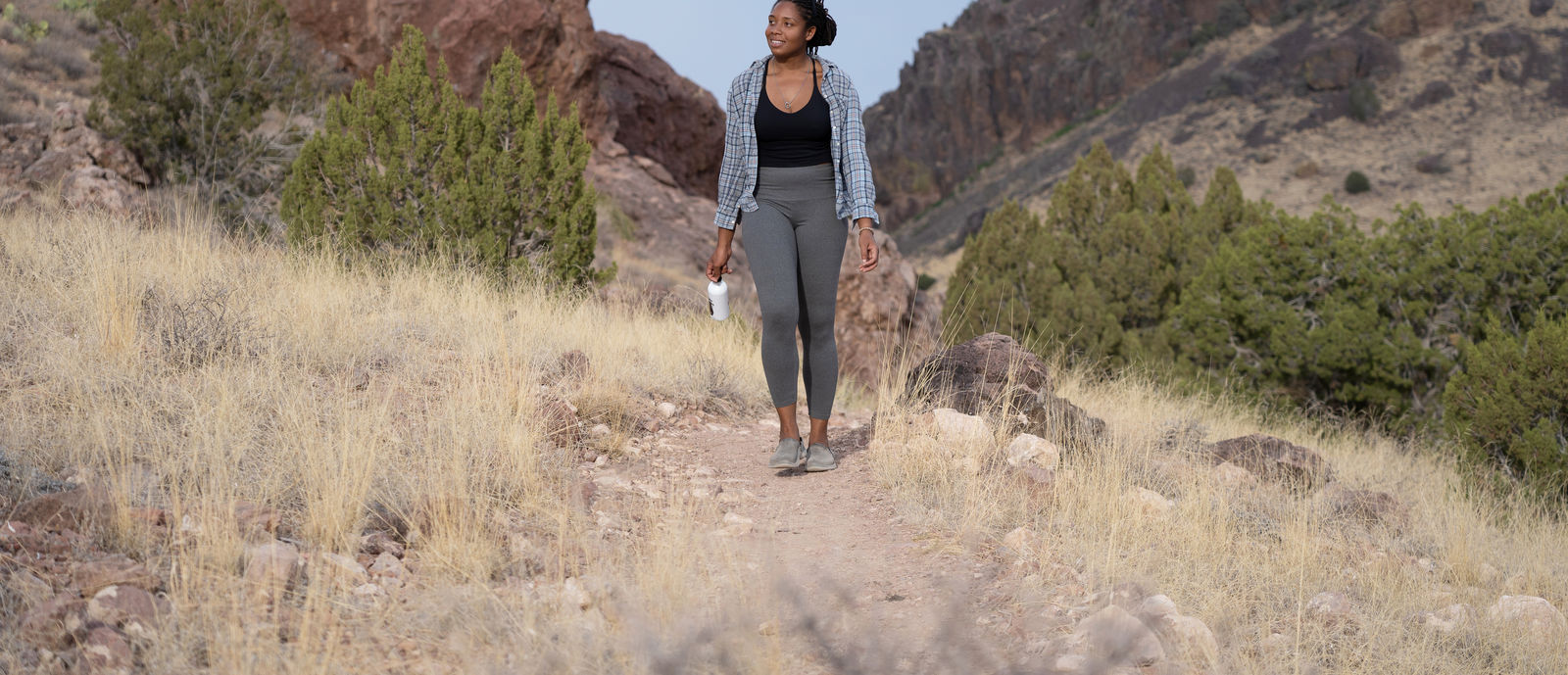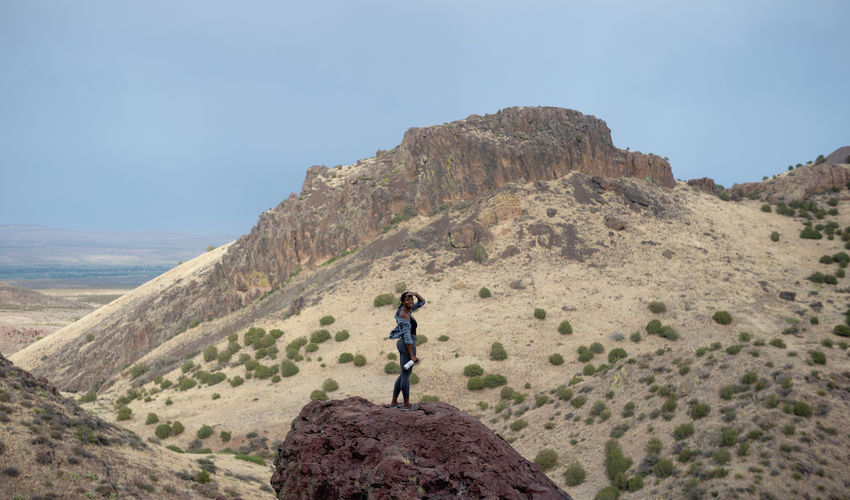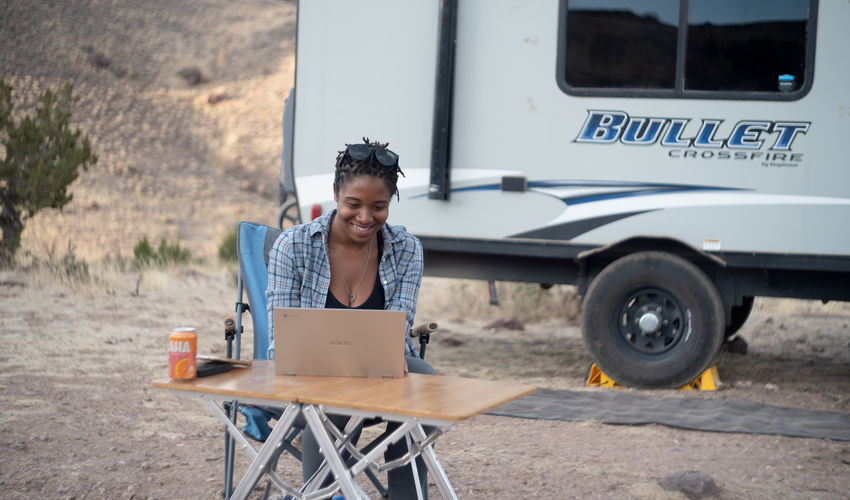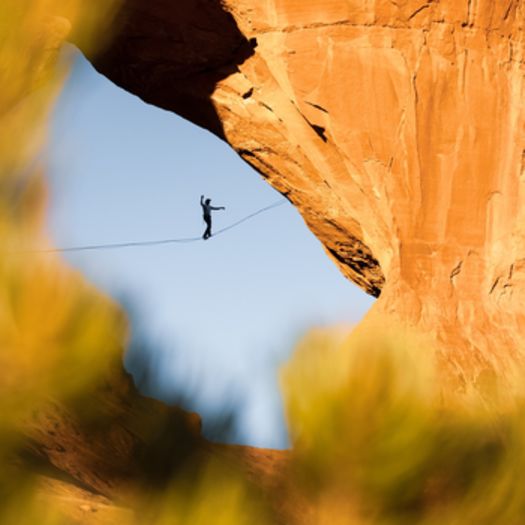
So You Want to Be a Digital Nomad? Here’s How to Do It.
Alexis Chateau gives her expert tips on how to maintain a thriving career from an RV.
The original article was published as part of a partnership with Wild Sky Media. The original can be found HERE.
In RV life, home is where you park it. But what about the office? Same rules apply. In the age of remote work, there’s never been a better time to take your show on the road, and there’s no better mobile office than an RV. Intrigued? Here’s how to make your mobile-work dreams a productive and fulfilling reality.

Create a Dedicated Workspace
If you’re reading this, odds are your work life changed in a big way over the past two years, and maybe you’re still working from home. So you know that clearly defining your workspace is crucial to avoiding a full takeover of your living space. Alexis Chateau, a successful freelance writer who has been running her business from a Keystone travel trailer on and off for the last two years, is emphatic on this point. “The dinette is my office—I don’t use it for anything else. If I’m eating dinner or relaxing, I do it outside or on the couch.”
By carving out a dedicated workspace, says Chateau, she’s able to create a clear delineation between work time and playtime—another topic she feels strongly about (more on that below). As with the home office, choose a space that’s comfortable, with a good background for Zoom calls, and that offers enough room for your laptop and any accessory electronics (Alexis runs a portable external monitor, keyboard, and mouse to boost writing productivity). “Another benefit of using the dinette as my office is that there’s a big picture window there so I can enjoy the view and get inspiration while I write.”

Do Your Research
Wi-Fi or strong cell reception is a must for working from an RV. Nowadays, many private campgrounds and even some state and national parks offer high-speed Wi-Fi. But what if your goal is to work from remoter areas the way Chateau does? Before heading out on a trip in her RV, Chateau takes time to carefully consider what access to cell reception and Wi-Fi will look like at her destination. “I’ve found that between the Free Roam app and Google reviews, I can get a pretty clear idea how much service I’ll have in the area I want to camp,” she says.
Other useful resources: the Federal Communications Commission maintains an interactive map of cell reception (voice and data) for the country’s four largest carriers, and iOverlander, a free app and website for camping and off-roading, features users’ reviews of campsites around the world, many of which detail the availability (or lack thereof) of cellular reception.

Boost Your Service
Chateau doesn’t rely on research alone to make sure she’ll be connected when she gets to camp. “A cell booster is a must for me,” she says. There are a number of options, but Chateau has relied on a Weboost unit (from $449), which amplifies the signal from her mobile carrier using a small magnetic antenna placed outside the RV at camp. Chateau also recommends purchasing a mobile hotspot for the added bandwidth, but she cautions that a hotspot does not make up for a lack of cell reception.

Think About Power
As with Wi-Fi and cell reception, your safest bet for finding reliable power is to work from an established campground that offers hookups. But if you, like Chateau, are boondock in remoter locations, you’ll need an off-grid power system. So look for an RV that’s equipped with solar panels and a sizable battery bank (200 amp-hours or more) or a gas-powered generator. Already have an RV but lack power-generating gear? Adding solar is simple. To avoid running a gas generator, Chateau supplements her trailer’s battery system with a portable, all-in-one solar generator from Goal Zero that has a number of AC and DC power outlets. A pair of foldable solar panels keeps her battery topped off.

Work to Live, Don’t Live to Work
Remember, the whole reason you’re working from your RV is to spend more time outside—so take advantage of that. Chateau’s recommendation: get creative with your schedule. “I condense my work into three days, working longer hours from Monday to Wednesday, so that I can spend the rest of the week adventuring,” she says. Even if your schedule isn’t flexible, working from an RV puts you that much closer to a pre-work hike, midday ride, or evening paddle. All that’s left to do is pick your next office location and hit the road.






